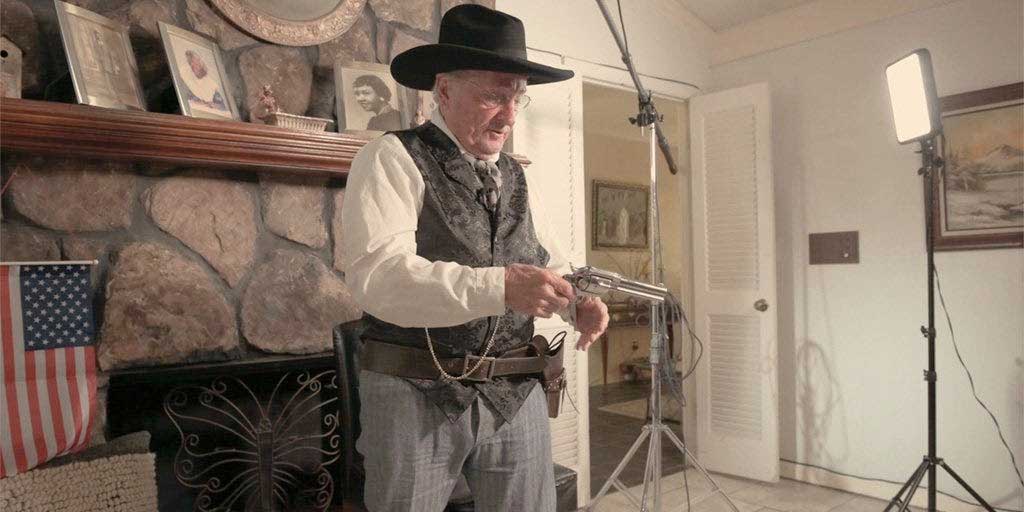Republished with permission from Thom Hartmann
Republicans know most Americans aren’t fans of tax cuts for billionaires, more pollution, deregulation of polluting industries, high-priced drugs, privatizing Medicare, ending Social Security, criminalizing abortion and birth control, student debt, hating on Black and queer people, and the GOP’s war on unions and working people.
So, to win elections across the country this fall and secure the White House for Donald Trump, they’re removing millions of mostly Black and Brown voters from the rolls. This started in a big way with Georgia and Texas, but the practice has now metastasized to nearly 30 Republican-controlled states across the country.
As Congressman Jamie Raskin points out, while at least 135 countries in the world have written an affirmative right to vote into their constitutions, “[by] my count, only Azerbaijan, Chechnya, Indonesia, Iran, Iraq, Jordan, Libya, Pakistan, Singapore, and, of course, the United Kingdom … still leave voting rights out of their constitutions and therefore to the whims of state officials.”
This led Congressman Mark Pocan, D-Wisconsin (and cosponsors), to propose a simple amendment to the Constitution. In 2013, they introduced into Congress amending legislation that said:
“Every citizen of the United States, who is of legal voting age, shall have the fundamental right to vote in any public election held in the jurisdiction in which the citizen resides.”
Republican then-Speaker of the House Paul Ryan refused to allow it to come to the floor for a vote and it died in that congressional session; a similar fate has befallen dozens of other efforts by Democratic legislators over the years, including the famous 2022 Republican filibuster of the We The People Act and the John Lewis Voting Rights Act.
In countries with an affirmative right to vote on the books, legal due process would be required before a citizen is deprived of their right to vote, but five Republicans on our Supreme Court have said, both in Bush v Gore and Shelby County, that voting in America is a privilege that can be removed on a whim, rather than a right.
In doing this, the Republicans on the Court completely ignored the 1993 bipartisan law passed by Congress and signed by President Clinton that explicitly gave all American citizens an absolute right to vote.
The preamble to the National Voting Registration Act (NVRA), now Title 42, Section 1973gg, is a long, three-part run-on sentence that says, in clear and straightforward language,
“The Congress finds that—
“(1) the right of citizens of the United States to vote is a fundamental right;
“(2) it is the duty of the Federal, State, and local governments to promote the exercise of that right; and
“(3) discriminatory and unfair registration laws and procedures can have a direct and damaging effect on voter participation in elections for Federal office and disproportionately harm voter participation by various groups, including racial minorities.”
Republicans probably could have relaxed. The only significant ruling by the US Supreme Court citing the NVRA was in 2018, in Husted v. Randolph, in which Justice Samuel Alito wrote the majority opinion allowing John Husted, Ohio’s secretary of state, to continue with an aggressive and massive purge of mostly big-city Black voters from that state’s rolls heading toward the 2018 election.
In his dissent, Justice Stephen Breyer pointed out that around 4 percent of Americans move out of their county every year. Yet:
“The record shows that in 2012 Ohio identified about 1.5 million registered voters—nearly 20% of its 8 million registered voters—as likely ineligible to remain on the federal voter roll because they changed their residences.”
Justice Sonia Sotomayor’s dissent was even more scathing:
“Congress enacted the NVRA against the backdrop of substantial efforts by States to disenfranchise low-income and minority voters, including programs that purged eligible voters from registration lists because they failed to vote in prior elections.
“The Court errs in ignoring this history and distorting the statutory text to arrive at a conclusion that not only is contrary to the plain language of the NVRA but also contradicts the essential purposes of the statute, ultimately sanctioning the very purging that Congress expressly sought to protect against.”
New York Times bestselling investigative reporter Greg Palast, on my radio/TV program last Friday, laid out the dimensions of the problem, particularly since Clarence Thomas was the tie-breaking vote in Shelby County v Holder to gut the protections of the 1965 Voting Rights Act.
Palast started in Georgia, looking into 2018 voter purges done by then-Secretary of State (the state’s top elections official) Brian Kemp in the runup to his challenge to Stacey Abrams for that state’s governorship. Kemp purged roughly a half-million Georgia voters from the rolls that year, and Palast obtained the complete list.
The Palast Investigative Fund hired a contractor that verifies names and addresses for Amazon—which has a multi-billion-dollar interest in making sure their delivery lists are clean—to examine each and every one of those roughly half-million voters.
While over 150,000 of them were people who’d legitimately moved out of state in recent years, fully 340,134 were just mostly Black people who lived in the state and hadn’t budged.
On election day that year, Palast was with a film crew at the Atlanta precinct where Martin Luther King Jr. used to vote and noticed an elderly Black woman with a walker who’d just been thrown out of the polling place into the rain because her name had been purged.
Approaching her, he learned her name was Christine Jordan and this would have been her 50th year voting in the same place. She invited Palast and his crew to her home, where he saw a picture of King on the wall; it turned out she was King’s cousin, and he used to come to her house regularly after Church for Sunday dinners.

94-year-old Christine Jordan, Martin Luther King Jr’s cousin, who was purged from the Georgia voter rolls in then-Secretary of State Brian Kemp’s massive purge before he ran against Stacey Abrams. Photo courtesy Greg Palast.
In the two years leading up to 2020, Kemp’s Secretary of State, Brad Raffensperger (pronounced Raff-ens-Purger), purged another massive 309,000 voters from the rolls, so Palast hired the same company to check the list: 198,351 were wrongly purged.
Palast, along with the Georgia ACLU, Black Voters Matter Fund, and the Georgia NAACP, were successful in getting about half of them put back on the rolls, which is why Joe Biden won that state by a mere, as Trump said, “11,780 votes.”
These purges have since spread out of Georgia and are now accelerating around the country. Keep in mind that, as NPR’s Domenico Montanaro explained:
“Just 44,000 votes in Georgia, Arizona and Wisconsin separated Biden and Trump from a tie in the Electoral College.”
Palast did a similar analysis in 2020 in then-GOP-controlled Wisconsin where 135,000 voters were about to be removed before the election. Using that Amazon contractor’s name-by-name analysis, he found that about a third of the list, “almost entirely Black people in Milwaukee and students in Madison,” were on the purge list incorrectly. Luckily, the Palast Investigative Fund and Black Voters Matter filed that information with a bipartisan elections commission and they stopped the purge so Biden was able to win that state by about 10,000 votes.
“Now,” Palast told me, “we have at least 20 states using this same purge system.”
Most recently, Republicans rolled out a new strategy to get around legal challenges to Red states purging millions of voters: voter vigilantes.
While most states allow whistleblower citizens to challenge the vote of an individual they know and believe is voting illegally, Georgia’s SB202 was the first law in the country to allow “unlimited” challenges to voters by people who aren’t government officials.
The benefit of this system is that states are banned by law from purging people via “list maintenance” within 90 days of an election, but a citizen vigilante can submit voter purge lists right up to and on election day, when it’s far too late for purged voters to re-register and vote.
“In 2022, 149,000 voters were challenged in Georgia,” Palast told me, “not by the government, but by vigilante vote fraud hunters using specious data. There have been two federal court rulings thus far that have allowed this to continue, so it’s now spreading to other states.”
Palast told me about one Georgian, Marjorie Taylor Greene ally Pam Reardon, who challenged 32,000 voters, heavily focused on Black people or college students, using a list from the group True The Vote, who produced the movie 2000 Mules (premiered at Mar-a-Lago by Trump himself) that falsely claimed millions of votes were “stuffed” into drop boxes by mostly Black people across the nation.
This, Palast told me, “is what election attorney Mark Elias calls the ‘Big new unseen threat.’”
Palast notes:
“Georgia and Texas are not red states: if people were allowed to vote they’d be Blue states.
“Their brand of voter vigilantism has now legally spread to Arizona, Michigan, Pennsylvania, and Wisconsin. They’re now mass challenging literally hundreds of thousands of voters, and True The Vote has put out the call to get 100,000 volunteers to submit these challenges. They’re probably the most effective vote suppression organization since the Ku Klux Klan.”
Raising the stakes, this past week courts approved the GA legislature’s plan to require new voters to prove their citizenship when registering to vote. That will hit married women particularly hard, as the National Organization for Women (NOW) details in a report:
“According to the Brennan Center for Justice, one third of all women have citizenship documents that do not identically match their current names primarily because of name changes at marriage. Roughly 90 percent of women who marry adopt their husband’s last name.
“That means that roughly 90 percent of married female voters have a different name on their ID than the one on their birth certificate. An estimated 34 percent of women could be turned away from the polls unless they have precisely the right documents.”
This hits Black women even harder than White women, and, because Black women have been the key to both the Obama and Biden presidencies, this is a reality not lost on Republicans. Particularly in a country and era where most elections are decided by one or two or three points.
None of these games Republicans are playing would be legal if we had an absolute right to vote or if the NRVA were enforced. Unfortunately, Republicans on the Supreme Court have repeatedly ignored it, even when referenced in voting rights lawsuits.
- Because we don’t have a right to vote, Red State governors can radically cut back on the number of polling places and voting machines so that working class people are forced to stand in line for five, six, in some cases in 2022 11 hours to vote.
- Because we don’t have a right to vote, legislators in Georgia made it a crime to give a bottle of water or a slice of pizza to somebody they have forced to stand in line for 11 hours to vote.
- Because we don’t have a right to vote, about 40 million registered voters nationwide have been removed from the voting rolls since 2014, so when they show up to vote they are given “provisional ballots” that, in Red States, are often never counted unless there is a lawsuit.
- Because we don’t have a right to vote, back in the 1960s William Rehnquist helped organize “Operation Eagle Eye” in Arizona to pull together a volunteer army of large and often uniformed white men to challenge Black, Hispanic, and Native American voters at the polls. It was so successful it kicked off Rehnquist’s political career, taking him all the way to Chief Justice of the US Supreme Court. Republican armed vigilantes have returned, surrounding Arizona ballot drop boxes challenging Hispanic voters.
- Because we don’t have a right to vote, Florida’s Republican Governor Ron DeSantis was able to prevent almost a million Florida citizens from voting if they owed fines or fees to the government.
- Because we don’t have a right to vote, Louis DeJoy could destroy the US Post Office and slow down the mail just in time for the election and not face any legal consequences.
- Because we don’t have a right to vote, in 2000 then-Florida Governor Jeb Bush threw over 90,000 African Americans off the voting rolls, supposedly felons barred from voting, just before the election that Jeb’s brother George “won” in Florida by 537 votes. Yet, not a single one of those Black voters was, Palast and the BBC found, a convicted felon.
- Because we don’t have a right to vote, the Supreme Court told the Republican governor of Ohio—and now all governors—that he could remove millions of registered voters from the rolls because they hadn’t voted in the previous election and didn’t mail back a postcard.
- Because we don’t have a right to vote, Red State legislators have been able to force through laws requiring citizens to jump through extraordinary hoops like getting IDs they normally wouldn’t need or use, just to vote.
- Because we don’t have a right to vote, Republicans in multiple states are making it extremely difficult to vote by mail or drop off your ballot at a convenient dropbox.
The press says the “Big Lie” is that the election of 2020 was stolen from Trump, but the real Big Lie—that was amplified by Trump and Johnson at their press conference last Friday at Mar-a-Lago—is that people vote illegally and therefore all these voter purges and other challenges are necessary.
While it requires lawful due process—your day in court—to take away your gun, Red state governors and secretaries of state can take away your vote without even telling you.
If Democrats can hold the Senate and White House and take back the House, the first order of business next January must be to pass legislation explicitly granting a legal right to vote that cannot be abridged for any reason other than treason or insurrection.

Thom Hartmann
Thom Hartmann, one of America’s leading public intellectuals and the country’s #1 progressive talk show host, writes fresh content six days a week. The Monday-Friday “Daily Take” articles are free to all, while paid subscribers receive a Saturday summary of the week’s news and, on Sunday, a chapter excerpt from one of his books.


